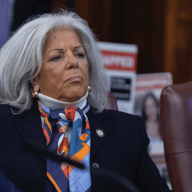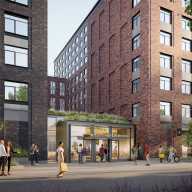Co-op and condo owners left in the lurch after state lawmakers originally closed the year’s session without passing key pieces of legislation will not be forsaken for long, officials pledged.
The Assembly, Senate and Governor Andrew Cuomo have reached an agreement on “landmark” tax relief legislation that will be signed into law later this year when legislators return to Albany, according to Assembly Speaker Sheldon Silver.
“In the short term, the city has issued tax bills for the current fiscal year based on the current tax abatement rates,” Silver said. “When the legislation is signed into law as promised by the governor, we anticipate that the new lower rates will be effective retroactive to July 1.”
Co-op and condo community leaders said the state Legislature left them “high and dry” last week after lawmakers adjourned the session without extending the city’s J-51 program and its tax abatement program. A bill that would put a halt to skyrocketing property tax valuations was also not addressed by the end of the session, they said.
The J-51 program gives owners partial property tax exemptions for capital improvements, and the abatement reduces the difference in property taxes paid by Class 2 co-op and condo properties and one-, two- and three-family homes in Class 1 — which are assessed at a lower percentage of market value.
Warren Schreiber, president of the Bay Terrace Community Alliance, said residents would pay up to an additional $1,200 a year in maintenance costs without the abatement. Bob Friedrich, president of Glen Oaks Village Owners, Inc., also counted his potential losses, saying his community would lose out on about $1 million.
But local elected officials said co-op owners need not worry about tax increases in the near future. The abatement, which expired June 30, will be continued until the State Legislature reconvenes later this year to pass a new plan, they said.
Assemblymember Ed Braunstein said it was “highly likely” the legislature would also pass his bill, which would increase abatements for middle class co-op owners from 17.5 percent to 25 percent this year and over 28 percent in three years.
“Co-op owners should be encouraged that relief is right around the corner,” Braunstein said.
Meanwhile, co-op and condo community leaders said they remain hopeful for a more permanent, long-term fix on annual valuation spikes.
According to a summary report released by the Department of Finance (DOF) this year, taxes are expected to rise by 7.5 percent for co-op owners and 9.6 percent for condo owners across the city, while owners of single-family homes will see an increase of 2.8 percent. Last year, officials said, some co-op and condo valuations saw astronomical increases as high as 147 percent.
A pair of audits released this year by the city comptroller’s office found the DOF at fault for causing upheavals in condo and co-op property values — a determining factor in property taxes — when it changed its formula for calculating them in fiscal year 2011-12.
Still, a proposed “8/30” valuation cap — which would have limited property tax increases to 8 percent per year or 30 percent over five years — was not passed, and Friedrich said he does not expect a solution to be reached for another year.
“I am optimistic, but actions do speak louder than words,” he said.






























